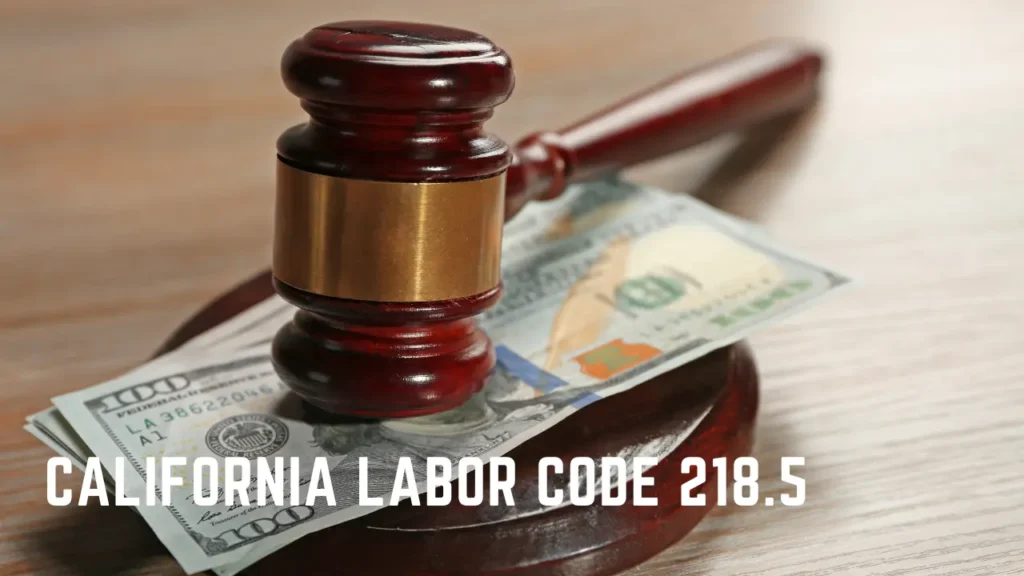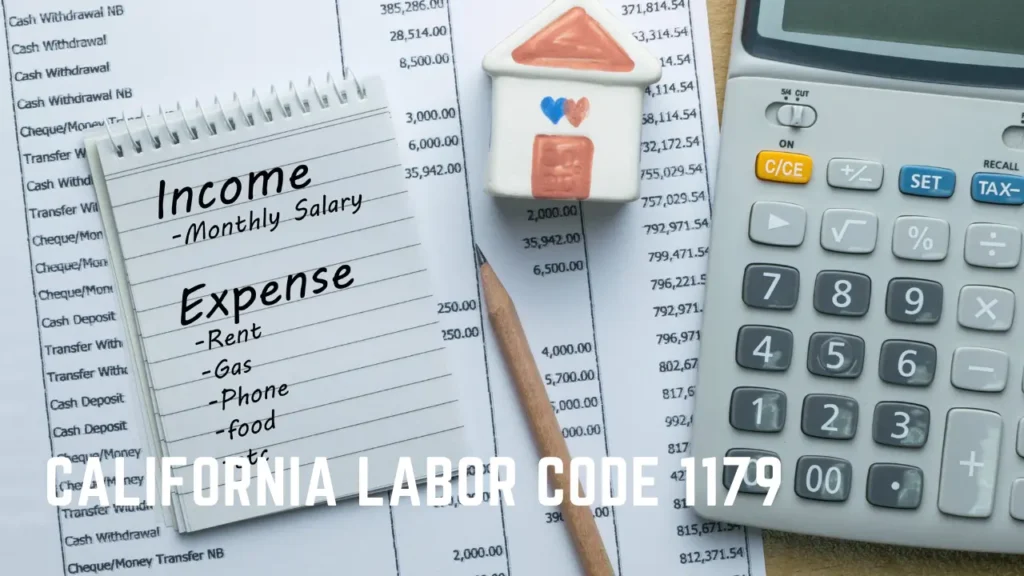Table of Contents
ToggleQuestions arise:
- How does California’s labor law interpret ‘overtime’ for hospital workers?
- Do these laws differ for exempt and non-exempt workers?
- What are the implications of alternative workweek schedules on overtime rules?
This discussion seeks to unravel these questions and more, providing a comprehensive understanding of the special overtime rules for hospital workers in California.
Understanding Exemption Status
To comprehend the nuances of overtime rules for hospital workers in California, the first essential step is to understand the exemption status of various healthcare roles. Exemptions typically apply to white-collar positions, computer professionals, doctors, surgeons, public employees, and employees of the University of California system. These roles must meet defined criteria, such as spending at least half of their working hours on tasks that require discretion and independent judgment, and earning a minimum salary threshold.
Registered nurses, generally classified as non-exempt, can be deemed exempt if they meet white-collar criteria or are employed by public institutions. This exemption classification holds paramount importance as it directly influences the applicability of overtime rules and the rights of hospital workers.
Criteria for White-Collar Workers
In the context of California labor laws, the classification of hospital workers as white-collar employees is contingent upon specific criteria that need to be fulfilled. Primarily, these roles must be primarily intellectual, managerial, or creative, and involve the exercise of discretion and independent judgment.
Additionally, they must involve specialized education and earn a monthly salary equivalent to at least twice the state minimum wage for full-time employment. Moreover, at least 50% of their work time should be spent on duties that meet the test of exemption.
Exempt roles include high-level positions like computer professionals, doctors, and surgeons. Registered nurses, unless meeting these criteria or working for public employers, are generally non-exempt. Clear understanding of these criteria is critical to ensuring compliance with overtime laws.
Registered Nurses’ Exemption Status
Despite the common perception, a significant proportion of registered nurses in California fall under the non-exempt category, primarily due to not meeting the stringent criteria for white-collar exemption status.
- This misperception can lead to potential exploitation and withholding of overtime pay rightfully owed to these healthcare professionals.
- Registered Nurses, given their pivotal role in patient care, often work extended hours without receiving due overtime compensation.
- The complex nature of labor laws and exemption categories can contribute to confusion and misunderstanding among RNs about their rights.
- The lack of awareness can result in these workers not seeking legal recourse for unpaid overtime.
It is crucial for Registered Nurses, and indeed all hospital workers in California, to understand their exemption status and the associated overtime rules.
Protection for Non-Exempt Workers
Understanding the protections afforded to non-exempt workers under California labor law is critical, as they provide a robust framework for ensuring fair compensation, particularly with regard to overtime pay. Non-exempt hospital workers, which include most registered nurses, are entitled to both federal and state labor protections. These include overtime pay for hours exceeding the stipulated workweek or workday limit, and mandated meal breaks.
Specifically, these workers receive time-and-a-half for any hours worked beyond eight in a day or 40 in a week. They can also receive double time for working over 12 hours in a single day or on the seventh consecutive day in a week. This protective legislation is instrumental in safeguarding the rights and welfare of non-exempt hospital workers.
Overtime Rules for Private Employers
Private employers in California are obligated by law to pay non-exempt hospital workers overtime when they exceed certain working hours. These rules are essential to ensure fair compensation for the physically and emotionally draining work hospital staff undertake.
- Non-exempt employees must receive one and a half times their regular pay rate for any hours worked beyond 8 in a day or 40 in a week.
- Double time is required for any hours worked beyond 12 in a single day or beyond 8 on the seventh consecutive day of work in a week.
Employers who fail to meet these requirements risk legal repercussions, including hefty fines and back pay lawsuits. Registered nurses, unless exempt, are included in these protections, acknowledging their critical role in the healthcare system.
Double Time Compensation
In the context of California labor laws, double time compensation refers to a regulation that mandates employers to pay non-exempt hospital workers at twice their standard hourly rate for certain conditions of extended work hours.
Generally, this applies when an employee works over 12 hours in a workday or in excess of eight hours on their seventh consecutive day of work in a workweek.
Double time compensation is a crucial aspect of California’s overtime laws, providing a substantial financial incentive for employers to responsibly manage work schedules and avoid overworking their staff.
The implementation of this rule underscores the state’s commitment to protect hospital workers from excessive work hours that could potentially compromise their health and well-being.
Alternative Workweek Schedules Defined
Often utilized in the healthcare sector, an alternative workweek schedule refers to a system that alters the traditional work hours and overtime rules for employees. This system is designed to meet the demands of the healthcare industry while ensuring adequate rest and work-life balance.
- It allows employees to work more than 8 hours per day without receiving overtime pay, up to a limit of 10 or 12 hours.
- The schedule must be adopted through a secret ballot vote by at least a two-thirds majority of affected employees.
- It requires employers to provide meal and rest breaks within specified time frames.
- The failure of employers to adhere to the rules governing alternative workweek schedules can lead to legal penalties, including claims for unpaid wages and overtime.
This system, although complex, aims to protect hospital workers’ rights while meeting the industry’s needs.
Procedure for Approving Alternative Schedules
Navigating the procedure for approving alternative schedules in California hospitals involves a specific, democratic process to ensure the majority of employees are in agreement with the proposed changes. An alternative workweek schedule can be proposed by the employer, which should clearly outline the number of regular and overtime hours. This proposal must then be approved by at least a two-thirds majority in a secret ballot vote involving all affected employees.
The vote must be held during regular working hours at the employee’s work location. If approved, the employer must report the results to the Division of Labor Statistics and Research within 30 days. Employees’ rights to overtime pay and meal breaks may change under an alternative schedule, highlighting the importance of informed decision-making.
Alternative Schedules in Healthcare Industry
Adapting to the unique demands of the healthcare sector, alternative workweek schedules have become increasingly common in this industry, particularly in hospital settings, as they provide a flexible solution for managing longer shifts. These schedules, adopted under specific regulations, can significantly impact both employers and employees.
- Employee Empowerment: Employees have a say in their work schedule, fostering a sense of control and satisfaction.
- Flexibility: These schedules offer much-needed flexibility in an industry characterized by round-the-clock patient care.
- Efficiency: Hospitals can operate more efficiently, scheduling staff for peak times and reducing unnecessary overtime.
- Work-Life Balance: Longer, but fewer shifts, may promote a better work-life balance, potentially reducing burnout and increasing job satisfaction among healthcare professionals.
This shift in work schedules reflects the evolving nature of the healthcare industry.
Exempt Workers and Overtime Pay
In the realm of employment law, the classification of workers as exempt or non-exempt plays a pivotal role in determining their eligibility for overtime pay. Exempt hospital employees in California, such as certain white-collar professionals, computer professionals, and physicians, typically do not receive overtime compensation. However, the law does not prohibit providing such pay.
Calculating overtime for these employees can be complex, as it may include bonuses and commissions in their regular rate of pay. Non-exempt employees, on the other hand, are entitled to overtime pay as per California and federal labor laws. Registered nurses, unless they meet specific criteria, generally fall under the non-exempt category and are thereby eligible for overtime pay.
Calculating Overtime for Salaried Workers
While the exemption status of workers significantly influences their eligibility for overtime pay, understanding how this pay is calculated for salaried employees, particularly those in healthcare, presents its own set of complexities.
- Overtime is typically calculated as time-and-a-half of the worker’s regular pay rate for any hours worked beyond 40 in a workweek.
- For salaried workers, the regular pay rate is determined by dividing the total pay for employment in any workweek by the total number of hours worked.
- The Fair Labor Standards Act (FLSA) provides for certain exemptions from this rule, specifically for ‘white-collar’ employees who meet specific criteria.
- However, these exemptions do not apply to all salaried employees, and many hospital workers in California are still entitled to overtime pay.
Understanding these rules and calculations is crucial for both employers and employees to ensure that all workers are paid fairly and in accordance with state and federal law.
Procedure for Recovering Unpaid Overtime
If an employee believes they have not been properly compensated for overtime work, there are specific procedures in place for recovering unpaid wages in California. Primarily, they can file a wage and hour claim with the California Labor Commissioner’s Office. This process involves submitting a claim form detailing the unpaid overtime hours and any additional wage violations.
Alternatively, employees can pursue a private lawsuit against their employer. Both routes potentially allow for the recovery of back wages, interest, and reasonable attorney’s fees. It is essential to note that there is a statute of limitations on these claims, generally three years from the date the wages were due. Therefore, timely action is crucial in these situations.
Legal Action for Wage and Hour Claims
Navigating the legal avenues for wage and hour claims demands an understanding of California labor laws, as these can significantly influence the outcome of a claim. Hospital workers who believe they are owed overtime pay can take legal action to recover their wages.
- Empathy: Remember, pursuing a claim can be daunting, but you have the right to fair compensation.
- Understanding: Know your rights under California labor laws. They are designed to protect you.
- Action: Don’t hesitate to consult with an employment law attorney. They can guide you through the complexities of the claims process.
- Hope: Recovering owed wages is not only possible, it’s your legal right. Stand up for your worth and rights.
With knowledge, understanding, and proper legal guidance, you can fight for your due compensation.
Conclusion
In conclusion, understanding California’s overtime rules and exemptions is vital for hospital workers. These complexities encompass the varying criteria for white-collar exemptions, the specifics for registered nurses, and the protections for non-exempt workers.
Additionally, comprehending overtime rules for private employers, overtime pay for exempt workers, and the calculation procedures are vital.
Lastly, knowledge on recovery procedures for unpaid overtime and legal actions for wage and hour claims is key in promoting fair compensation and a balanced work environment.















